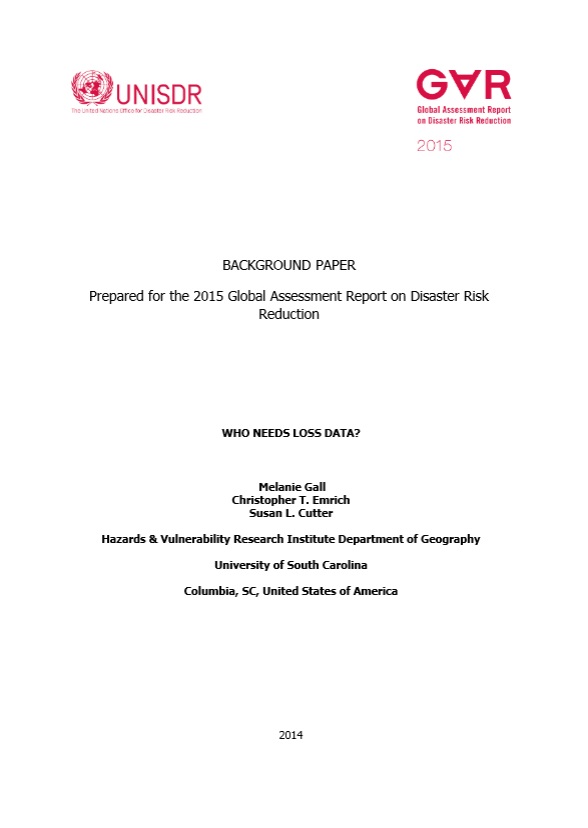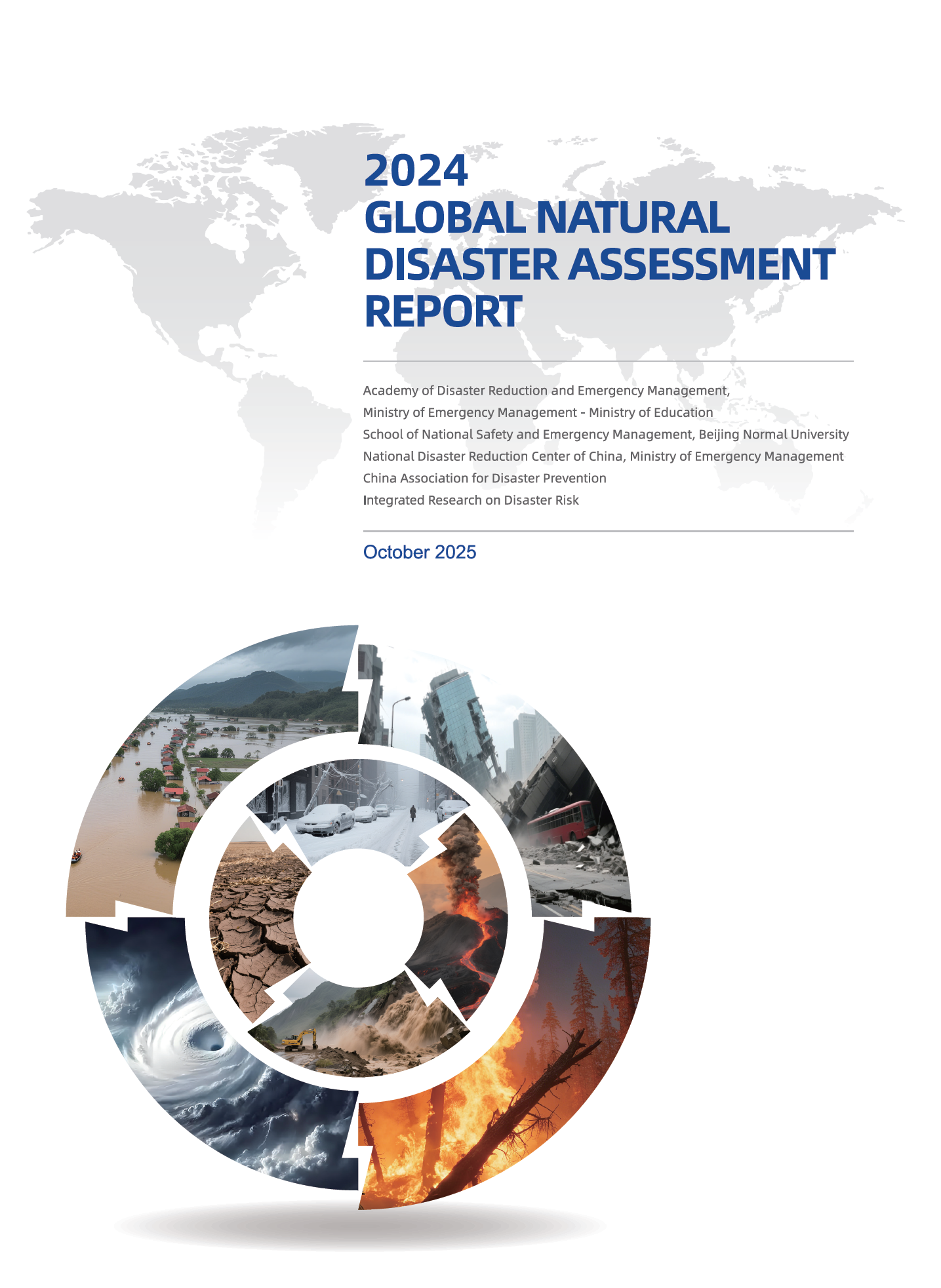University of South Carolina, 2014 University of South Carolina. 2014. Who needs loss data? Background Paper prepared for the 2015 Global Assessment Report on Disaster Risk Reduction. Geneva, Switzerland: UNISDR.
This paper provides an overview of the loss data landscape in the United States. It outlines the various organizational efforts for collecting and disseminating loss data. Numerous governmental organizations collect loss estimates but there is not a single governmental entity that consolidates and disseminates this information in a standardized and publicly accessible manner. The premier loss database in the U.S. – the Spatial Hazards and Events Loss Database for the United States (SHELDUS®) – is maintained by the University of South Carolina. SHELDUS® is among a small number of databases worldwide that track losses at the sub-national/county-level. As a result, many U.S. state and local governments along with many government contractors rely on this database for risk reduction activities. This paper provides practical examples of integrating loss data into research, emergency management, and planning activities. Particular focus is given to hazard mitigation planning and the benefits as well as obstacles of integrating loss data into disaster risk reduction. It also touches on issues such as data quality and next steps to improve hazard loss monitoring, including downscaling losses to more localized areas, broadening hazard coverage, and incorporating indirect losses and other non-economic measures into databases.






